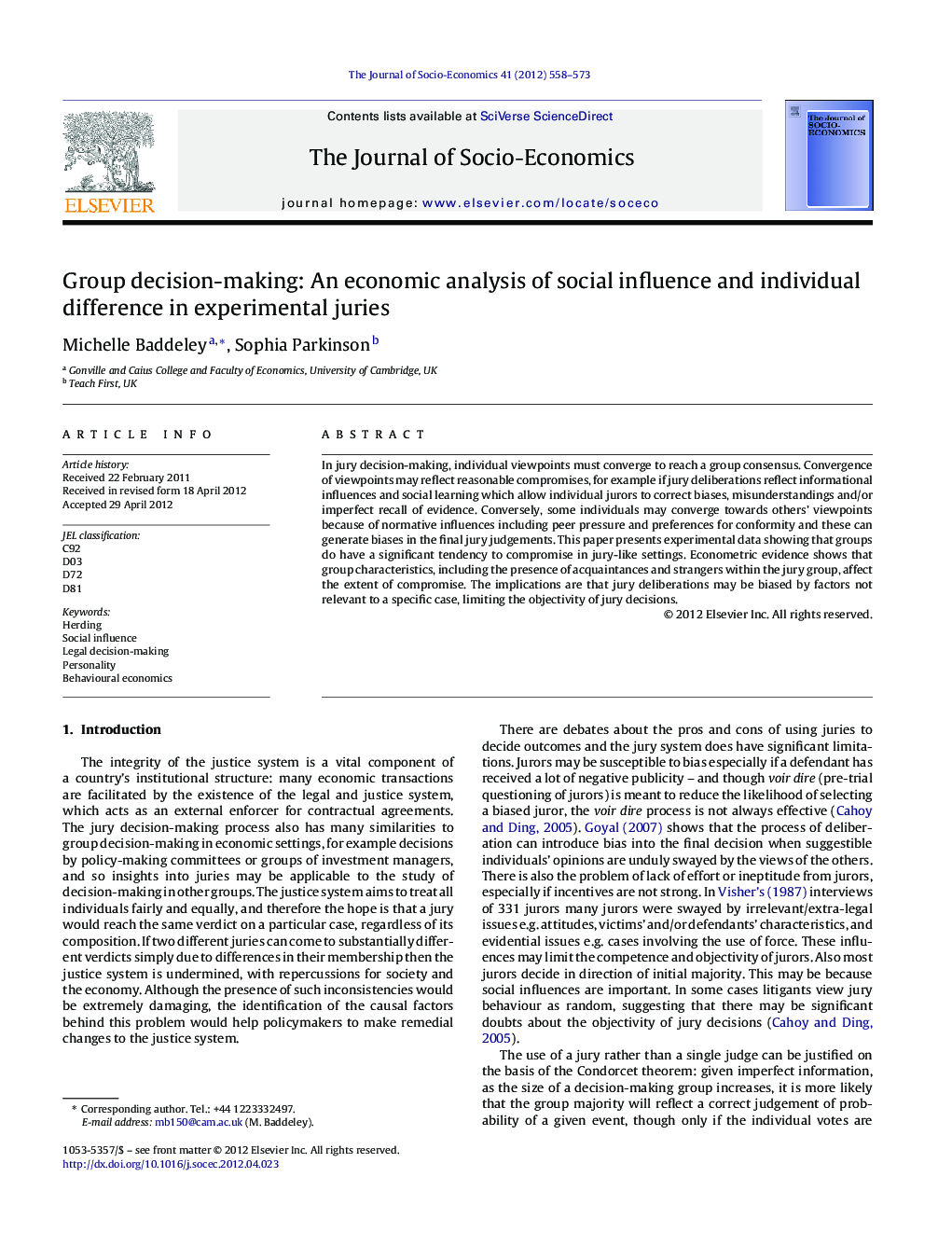| Article ID | Journal | Published Year | Pages | File Type |
|---|---|---|---|---|
| 970680 | The Journal of Socio-Economics | 2012 | 16 Pages |
In jury decision-making, individual viewpoints must converge to reach a group consensus. Convergence of viewpoints may reflect reasonable compromises, for example if jury deliberations reflect informational influences and social learning which allow individual jurors to correct biases, misunderstandings and/or imperfect recall of evidence. Conversely, some individuals may converge towards others’ viewpoints because of normative influences including peer pressure and preferences for conformity and these can generate biases in the final jury judgements. This paper presents experimental data showing that groups do have a significant tendency to compromise in jury-like settings. Econometric evidence shows that group characteristics, including the presence of acquaintances and strangers within the jury group, affect the extent of compromise. The implications are that jury deliberations may be biased by factors not relevant to a specific case, limiting the objectivity of jury decisions.
► Economic analyses of herding and social influence applied to a mock jury study. ► Includes a survey of mock jury studies, including pros, cons and major findings. ► Tobit analysis reveals significant tendencies to compromise towards group decisions. ► Analysis of results reveals that social influences affect extent of compromise. ► Social influences are positive if they enable compromise but negative if they reflect conformity.
